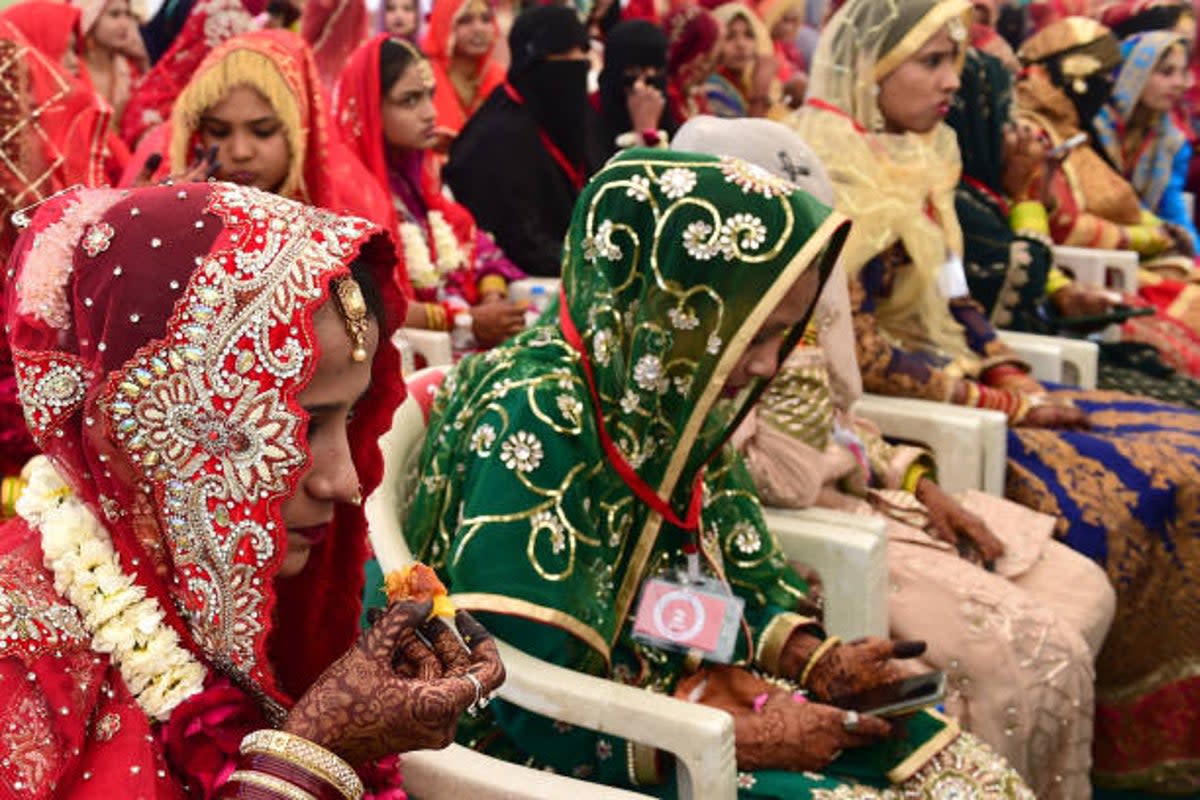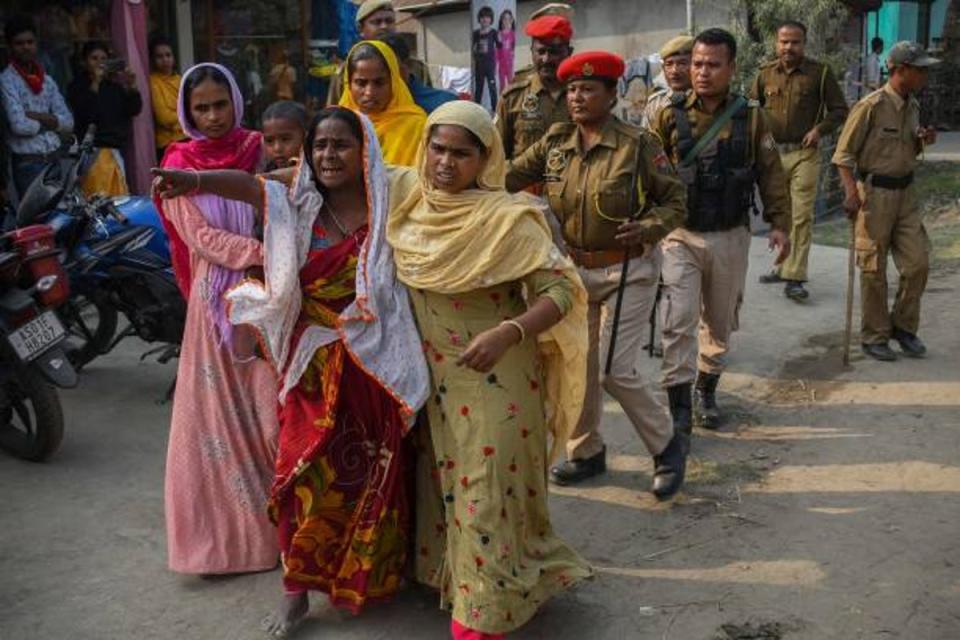Indian state strikes down controversial colonial-era law that allowed Muslim child marriage

- Oops!Something went wrong.Please try again later.
The Indian state of Assam has repealed a colonial-era law that allowed child marriage among Muslims, in a move that is being seen as contentious just months before the country’s general election.
While India has a uniform criminal code across the country, so-called “personal laws” governing issues like marriage, divorce, adoption and inheritance vary between religious groups and are often based on differing cultural practices.
Narendra Modi’s ruling BJP party, which is also in power in Assam, has been campaigning to create a uniform civil code that would supersede different religions’ personal laws. Critics fear the move will have a disproportionate impact on the practices of minority religions.
The Assam state government said it was striking down the Muslim Marriage and Divorce Registration Act of 1935, effective imediately from Saturday. Assam has one of the largest Muslim contingents in India at 34 per cent of the population, and community leaders accused the BJP of trying to polarise voters ahead of the election, which is due to take place by May.
Chief minister Himanta Biswa Sarma said: “This act contained provisions allowing marriage registration even if the bride and groom had not reached the legal ages of 18 and 21 ... This move marks another significant step towards prohibiting child marriages in Assam.”
BJP state assembly member Jayanta Malla Baruah said it was “a very important step in the journey towards a uniform civil code” in the state. He told reporters that with the law repealed, Muslim marriages in the state will now happen under the Special Marriage Act – a pan-Indian law that is most commonly used to register inter-religious marriages.
“Through this [the repealed law], we would also see underage marriages being registered – of boys below 21 years or girls below 18 years. So this is a big step towards us being able to completely eradicate child marriage,” he said.
The Assam government is also looking to ban polygamy in the state, making it a criminal offence, and Mr Sarma has repeatedly spoken out against the practice. It is banned among most religions in India, but Muslim men can legally have up to four wives under their personal laws.
Asked by reporters on Sunday whether the northeastern state would implement a uniform civil code before the general election, Mr Sarma said: “Not immediately.”

Many Muslims in Assam trace their roots to the neighbouring Bengali-speaking and Muslim-majority country of Bangladesh, while there are at times tensions in the state between Muslims and ethnic Assamese, who are mostly Hindu.
Muslim opposition leaders said repealing the colonial-era law was discriminatory.
“They want to polarise their voters by provoking Muslims, which Muslims will not let happen,” Badruddin Ajmal, a lawmaker from Assam who heads the All India United Democratic Front, which mainly fights for Muslim causes, told reporters on Saturday.
“It’s a first step towards bringing a uniform civil code, but this is how the BJP government will come to an end in Assam.”
Additional reporting by agencies
